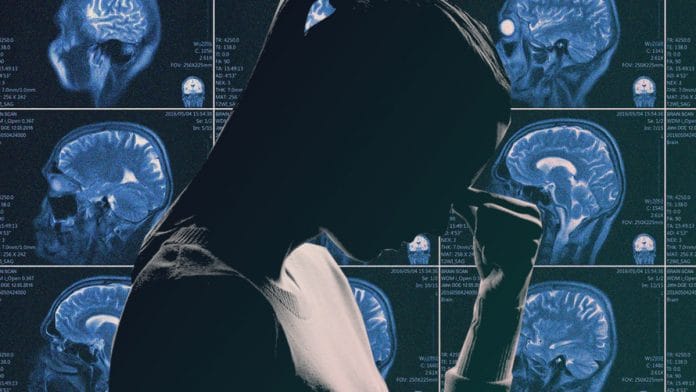• Young people’s mental health needs worldwide are not taken seriously enough.
• Adolescence can be a challenging time where mental health support needs increase – but also a unique window of opportunity.
• UNICEF and Z Zurich Foundation are launching a new partnership to address youth mental health in three focus areas.
Positive mental health allows us to think, learn and build our lives. But for too many young people today, distress is negatively impacting their health and preventing them from thriving. The COVID-19 pandemic has only exacerbated mental health concerns for many young people. Unable to go to school, cut off from friends and family, and facing uncertainty about the future, they are missing the routines, social connections and healthy activities that are so crucial to their development and mental well-being.
Even before the pandemic, the mental health needs of young people were not being adequately met. An estimated 14% of 10-19 year olds live with a diagnosed mental disorder, and half of all diagnosable mental disorders begin by the age of 14. But diagnosed mental disorders are only part of this picture. Many young people face socio-economic challenges and cultural or social barriers to inclusion that can contribute to or exacerbate distress.
Despite this, young people are telling us they don’t feel their mental health is taken seriously. In a recent UNICEF poll of over 900 young people in Jamaica, 41% believed that this is because of misconceptions about mental illness, 24% due to lack of information, and 36% due to cultural norms that do not recognize the significance of mental health and well-being as a component of overall health.
It’s up to us as a global community to respond, and in a way that addresses both the vulnerabilities and tremendous opportunities presented by this period in life.
As adolescents transition to adulthood, they experience major physical, cognitive and psychosocial changes. It can be a time of heightened risk for developing mental health conditions such as anxiety and depression, but this period of rapid change is also a window of opportunity to set adolescents on a positive trajectory. Building healthy relationships and establishing healthy habits, for example, can positively impact an adolescent’s well-being now and in the long term.
Importantly, adolescents need caregivers, trusted adults, schools and communities to guide, support, and nurture them as they go through these transitional experiences. It is therefore critical that we also strengthen support to caregivers so they can better promote and protect their own mental health, as well as that of their teens.
While it is encouraging that awareness of the need for attention to mental health and well-being is growing, the necessary increases in resource allocation for psychosocial well-being have not followed, especially for adolescents and young people. Less than 1% of governmental health budgets in low-income countries is spent on mental health, and even less on promotion and prevention programmes for young people. Yet these are exactly the programmes we need to harness the window of opportunity for adolescents, because they strengthen individuals’ capacity to regulate emotions, enhance alternatives to risk-taking behaviors, build resilience for difficult situations and adversities, and promote supportive social environments and social networks.
So how do we respond? We see three opportunities for public and private sector action and investment.
First, we need to continue engaging young people, their caregivers and their communities in judgement-free conversations about mental health. Talking about mental health is not always easy, but continued efforts are needed to start conversations that facilitate understanding, connection, support and destigmatization of mental health.
Second, we need to make mental health promotion and prevention services universally available to young people. To do this, we don’t need to start from scratch. We can build upon existing global and national efforts across sectors to advance evidence-based action for promoting and protecting adolescent mental health. A critical next step is to develop and implement tools that are adapted for local contexts in low- and middle-income countries.
Third, we have an opportunity to build a coalition of public and private actors who are willing to take action and invest in promotion and prevention of adolescent mental health.
UNICEF and Z Zurich Foundation have today launched a new partnership, which aims to act upon the three opportunities above. This new partnership will initially benefit more than half a million adolescents and caregivers in seven countries and reach more than 30 million people with campaign messages globally. We hope these efforts will strengthen programmes and resources that can be scaled up around the world, but we cannot do it alone. We need partners willing to share their expertise and influence, we need businesses to work with their employees and partners and join the campaign, and we need governments to increase their investment in mental health, particularly towards promotion and prevention activities.
With children and adolescents accounting for up to half of the population in some parts of the world, it is essential that we keep the spotlight on mental well-being as we recover, rebuild and reimagine a safer, healthier and more inclusive world for every child. Join us in ensuring that the mental health and well-being of young people no longer remain overlooked and underfunded. In an increasingly interdependent world, the future of all people will be brighter if positive actions are taken today to support the next generation.
Charlotte Petri Gornitzka, Deputy Executive Director, United Nations Children’s Fund (UNICEF)
Gary Shaughnessy, Chair, Z Zurich Foundation
This article was originally published on World Economic Forum. You can read it here.
Also read: Anxiety, depression cost the global economy $1 trillion a year — then came Covid






